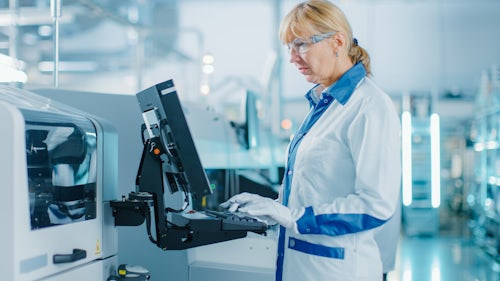MES for flexible and paperless pharmaceutical production
The benefits of a paperless approach in pharmaceutical production
Embracing a paperless approach presents a transformative opportunity with multifaceted benefits. Paperless processes offer substantial improvements across critical operational aspects by alleviating pressures on time, quality, compliance and innovation. Some of the most significant advantages of going paperless are:
Faster document changes and reviews
Secure multi-person access and shared understanding
Instant backup
Efficient management of multiple documents
Reduced human errors
Heightened transparency for compliance
How MES provides the foundation in paperless operations
MES plays a pivotal role in revolutionizing pharmaceutical operations by facilitating a transition to paperless, flexible processes. Equipped with features like digital guidance and eBR design, MES ensures seamless integration, simplifying complex tasks. These systems auto-document every step, minimizing human errors and providing real-time assurance of quality and compliance. MES not only addresses the industry's flexibility challenges but also supports paperless workflows, saving time and enhancing efficiency. It acts as a digital backbone, enabling a healthier future for the biopharma sector by aligning with imperatives of agility, innovation and sustainability.
Read the ebook to learn more about the advantages of MES and how it supports flexible and paperless operations.
